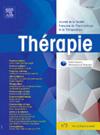How could proton pump inhibitors de-prescription be managed in geriatric long-term care?
IF 2.2
4区 医学
Q3 PHARMACOLOGY & PHARMACY
引用次数: 0
Abstract
Background
Evaluate the misuse of proton pump inhibitors (PPIs) in geriatric long-term care (LTC) patients and improve caregiving by de-prescribing non-relevant PPIs in this population.
Aim
This study was conducted in the long-term care department of the geriatric hospital Pierre-Garraud in Lyon. All patients receiving PPI for more than 8 weeks were included. A reassessment form was filled to evaluate the treatment benefit/risk ratio during a collegial consultation between the patient's referring physicians and pharmacists. During these consultations, the following possible decisions were taken: continuation, dose adjustment or gradual discontinuation of treatment. Patients’ monitoring were performed one month and three months after discontinuation to detect any relapses and causes.
Results
Among the 113 patients included, 97 patients had their treatment re-evaluated by collegial consultation. Forty-four (45.4%) patients were treated in accordance with recommendations. For 24 of them, the indication was symptomatic recurrent gastroesophageal reflux disease. The treatment of more than half of the re-evaluated patients (54.6%) was gradually stopped. After the 3-month follow-up post-discontinuation, excluding patients who died during this period, 80.9% of the discontinuations were well-tolerated and only nine were resumed (19.1%).
Conclusion
This study allowed a re-evaluation of PPI treatments in a high-risk population and offered a decision support tool focused on the benefit/risk balance of PPIs; 55% of treatments were considered irrelevant and could be stopped with 80% of good tolerance.
如何在老年长期护理中管理质子泵抑制剂的停药?
背景评估老年长期护理(LTC)患者中质子泵抑制剂(PPI)的滥用情况,并通过取消对这一人群开具无关的 PPI 来改善护理服务。所有服用 PPI 超过 8 周的患者均被纳入研究范围。患者的转诊医生和药剂师在共同会诊时填写了一份重新评估表,以评估治疗的收益/风险比。在会诊过程中,可能会做出以下决定:继续治疗、调整剂量或逐步停止治疗。停药一个月和三个月后对患者进行监测,以发现复发情况和原因。44名患者(45.4%)按照建议进行了治疗。其中 24 人的治疗指征是有症状的复发性胃食管反流病。超过一半(54.6%)的重新评估患者逐渐停止了治疗。在停药后 3 个月的随访中,除去在此期间死亡的患者,80.9% 的停药患者耐受良好,只有 9 名患者恢复了治疗(19.1%)。结论这项研究允许对高风险人群中的 PPI 治疗进行重新评估,并提供了一种决策支持工具,重点关注 PPIs 的效益/风险平衡;55% 的治疗被认为无关紧要,可以停药,80% 的耐受良好。
本文章由计算机程序翻译,如有差异,请以英文原文为准。
求助全文
约1分钟内获得全文
求助全文
来源期刊

Therapie
医学-药学
CiteScore
3.50
自引率
7.70%
发文量
132
审稿时长
57 days
期刊介绍:
Thérapie is a peer-reviewed journal devoted to Clinical Pharmacology, Therapeutics, Pharmacokinetics, Pharmacovigilance, Addictovigilance, Social Pharmacology, Pharmacoepidemiology, Pharmacoeconomics and Evidence-Based-Medicine. Thérapie publishes in French or in English original articles, general reviews, letters to the editor reporting original findings, correspondence relating to articles or letters published in the Journal, short articles, editorials on up-to-date topics, Pharmacovigilance or Addictovigilance reports that follow the French "guidelines" concerning good practice in pharmacovigilance publications. The journal also publishes thematic issues on topical subject.
The journal is indexed in the main international data bases and notably in: Biosis Previews/Biological Abstracts, Embase/Excerpta Medica, Medline/Index Medicus, Science Citation Index.
 求助内容:
求助内容: 应助结果提醒方式:
应助结果提醒方式:


